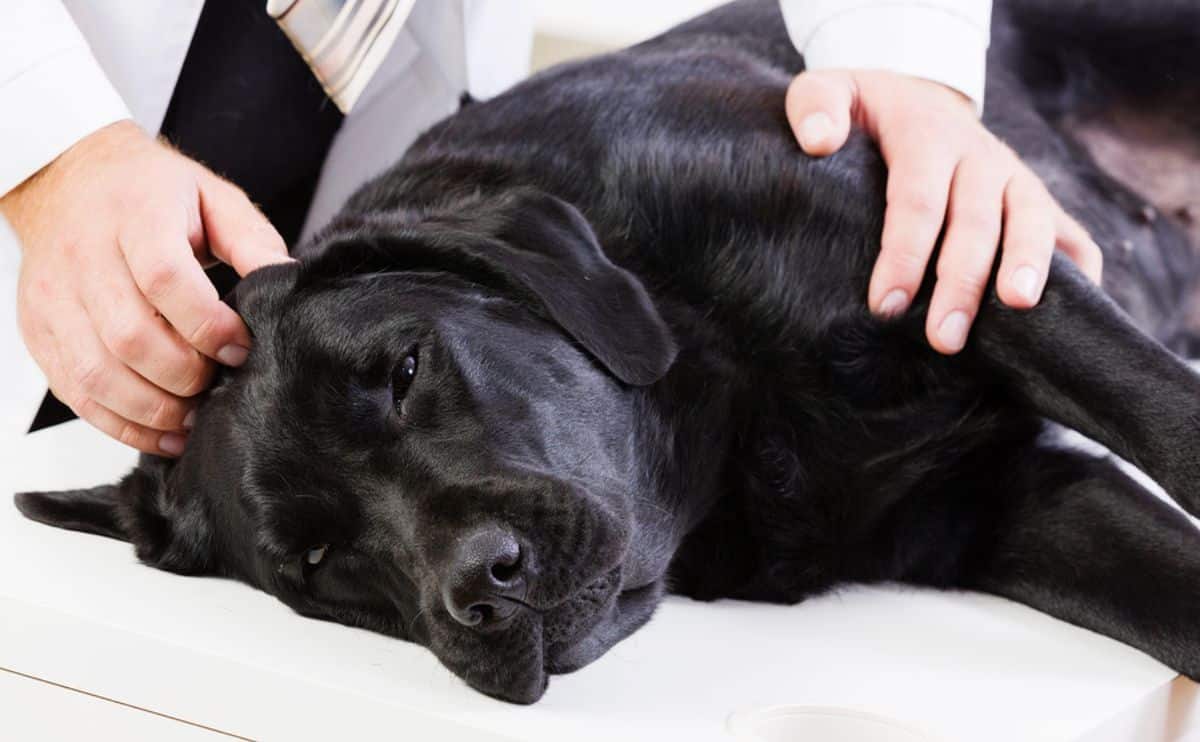Looking for the Best Family Dogs? These Breeds Check Every Box
When you purchase through links on our site, we may earn a commission. Here’s how it works.
The best family dogs aren’t just cute faces, fuzzy cuddles, and wagging tails. They’re patient playmates, snack-time shadows, and loyal companions through every mess, meltdown, and milestone. Some love the hustle and bustle of a full house, while others are pros at quiet cuddles and calm routines. The key is finding the breed that fits your unique brand of family chaos (or calm).
Table of Contents
Whether you’re looking for a pint-sized pup or a gentle giant, there’s a perfect match out there. The best family dogs come in all shapes, sizes, and shedding levels. Now it’s just a matter of finding the one who belongs on your couch and in your heart.
Top 4 Traits That Make a Dog Truly Family-Friendly
Not every dog is built for the beautiful chaos that comes with kids, toys on the floor, and a home that rarely stays quiet. The best family dogs are more than just adorable. They are patient, adaptable, and ready to dive into family life, snack crumbs and all. If you’re wondering what sets these dogs apart, here are the traits that really matter.
1. Sturdiness: Ready for Play and the Occasional Tackle Hug
When kids show love, it usually involves giggles, sticky fingers, and surprise hugs that knock everyone off balance. One minute, they’re petting nicely; the next, they’re trying to turn your dog into a pillow. That’s why the best family dogs are the ones who can roll with it, patient, sturdy pups who don’t mind being part pillow, part playmate, and full-time best friend. Look for a breed that’s physically solid and emotionally easygoing. The ideal dog is strong enough to endure a bit of rowdy play but gentle enough to respond with calm.
2. Energy in Sync: Matching Your Dog’s Tempo with Your Family’s Pace
Family life is full of activity, but not every home operates at the same pace. Some families are up early, on the go, and constantly moving, while others prefer slow mornings and quiet evenings. The best family dogs are the ones who match your rhythm. Too much energy can be exhausting, but too little might leave a dog feeling bored. The right fit will play when it’s time to play and rest when it’s time to relax.
3. Hearts of Gold: How Loyalty and Affection Shape the Perfect Companion
A sweet, loving personality is often the most important quality in a family dog. The best companions are affectionate, people-focused, and eager to be involved in daily life. These dogs curl up beside your kids, watch out for them like furry guardians, and form strong bonds with every family member. When a dog is truly devoted to their people, it shows in every tail wag and bedtime cuddle.
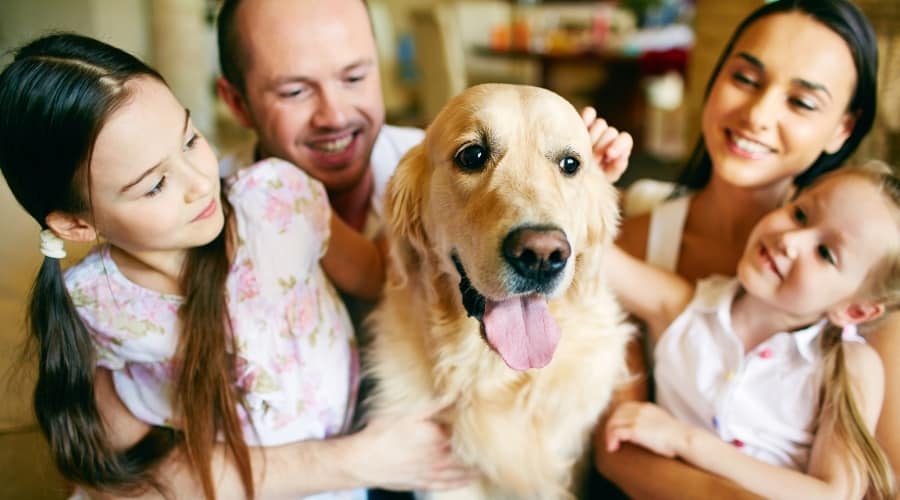
4. Smart, Social, and Easy to Live With
A great family dog isn’t just cute and cuddly. They’re also a breeze to live with. Dogs that are easy to train tend to settle into routines faster, learn the house rules without a fuss, and make life smoother for everyone, especially first-time pet parents. A pup that listens well is more enjoyable to be around and safer for kids and guests.
Sociability is another big win. The best family dogs love being part of the action, whether greeting guests at the door, playing with other pets, or simply hanging out wherever the family is. A friendly, outgoing dog helps keep the household peaceful and makes your home feel even warmer and more welcoming.
Below, we share a special moment with one of our favorite family dogs:
Top 5 Things To Consider Before You Pick a Family Dog
Even the friendliest dog breed might not be the right fit for every family. Dogs have their own needs, preferences, and personalities; the goal is to find one who truly belongs in your world. Before you bring home a new four-legged friend, look closely at what your family can offer and what kind of dog would thrive in that environment.
1. Activity Level: Couch Potatoes vs. Trail Blazers
Start by being honest about how active your household really is. A Labrador may sound perfect on paper, but if you prefer quiet weekends at home, that high-energy pup might be too much. On the other hand, a laid-back Bulldog may not be the best choice for a family that spends every weekend hiking or running. Choosing a breed that matches your lifestyle will lead to a happier home for everyone.
2. Health and Veterinary Needs
Some breeds are more prone to health issues than others. While every dog deserves love and care, it’s important to think about the long-term responsibilities that come with certain medical concerns. Vet bills can add up quickly, especially if your dog needs frequent care. Researching breed-specific health risks and exploring pet insurance or wellness plans can make a big difference in managing the cost of care.
Puppies come with extra snuggles and extra health expenses. The first year of vet care is usually the most expensive, with a series of vaccinations, deworming treatments, microchipping, and the cost of spaying or neutering.
3. Your Living Situation
Your home should be a safe and comfortable space for both your family and your dog. A high-energy or large breed may struggle if you live in a small apartment with limited outdoor access. On the other hand, if you have a big backyard and plenty of room to roam, a larger or more active dog might be right at home. Think about your space now, and also where your family might be in the future. Dogs are long-term companions and deserve a home that can meet their needs at every stage.
4. Noise Tolerance (Yours and Theirs)
Some breeds are naturally vocal, while others are more reserved. If you live in an apartment or have noise-sensitive neighbors (or your own sensitivity to barking), breed temperament matters more than you might expect. Some breeds, like Beagles and Huskies, are known for their vocal talents, while others, like Greyhounds or Cavaliers, tend to keep their thoughts to themselves.
Barking isn’t the only concern either. Whining, howling, and even the pitter-patter of paws at 6 a.m. can be jarring if you’re used to a quiet home. Think about both your tolerance for noise and your dog’s. A sound-sensitive pup might not thrive in a loud environment, while a more easygoing breed will tune out the background clatter like a pro.
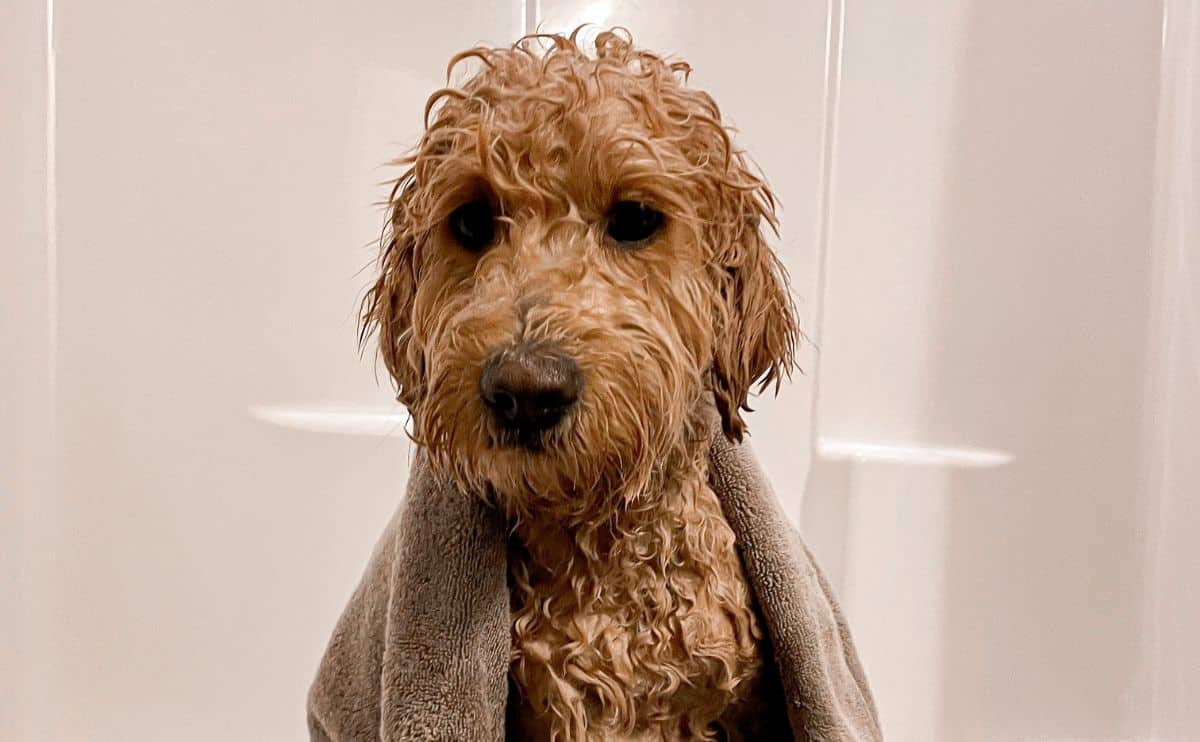
5. Grooming Needs: More Than Just a Bath and a Brush
Some dogs are wash-and-go. Others? Not so much. Grooming needs can vary wildly between breeds, and it’s something every family should think through before bringing home a new pup. Long-haired breeds like Golden Retrievers or Standard Poodles require regular brushing to prevent mats and tangles, not to mention trips to the groomer every few weeks. That can add up in both time and cost.
Short-haired dogs might seem lower maintenance, but they still shed and need regular baths, nail trims, and ear cleaning. And don’t forget those sneaky seasonal shedding bursts that can coat your furniture in fur faster than your vacuum can keep up.
If you’re short on time or have kids with allergies, look into breeds with minimal shedding and simpler grooming routines. A little coat care can be a bonding activity, but if brushing a dog every day sounds like a chore, choose a breed that won’t need a full spa treatment just to stay comfortable.
Time, Budget, and Lifestyle: The Reality Check Every Family Needs
Dogs add a lot of love to your life, but they also require time, money, and routine. Here’s what to think about before you commit.
Time Commitment
Dogs don’t just need food and a backyard. They need you. From early morning potty breaks to evening play sessions, dogs thrive on attention, structure, and quality time. Puppies require round-the-clock supervision, training, and plenty of patience. But even adult dogs need daily exercise, mental stimulation, and love.
If your family’s schedule is packed from sunrise to bedtime, ask yourself where a dog realistically fits in, not just on weekends but every single day. A neglected dog is unhappy, and unhappy dogs often turn into chewed-up furniture or behavior problems.
Budget
It’s easy to fall for a puppy’s big eyes without considering long-term costs. But dog ownership is a hefty financial commitment. Beyond food and toys, there is grooming, routine vet visits, vaccines, flea and tick prevention, emergency care, boarding, training classes, and maybe even replacing the occasional shoe or carpet.
Some breeds also come with high-maintenance coats or chronic health concerns that can drive up costs. Before adopting, it’s worth making a monthly pet budget. A little planning now can save a lot of stress (and surprise vet bills) later.
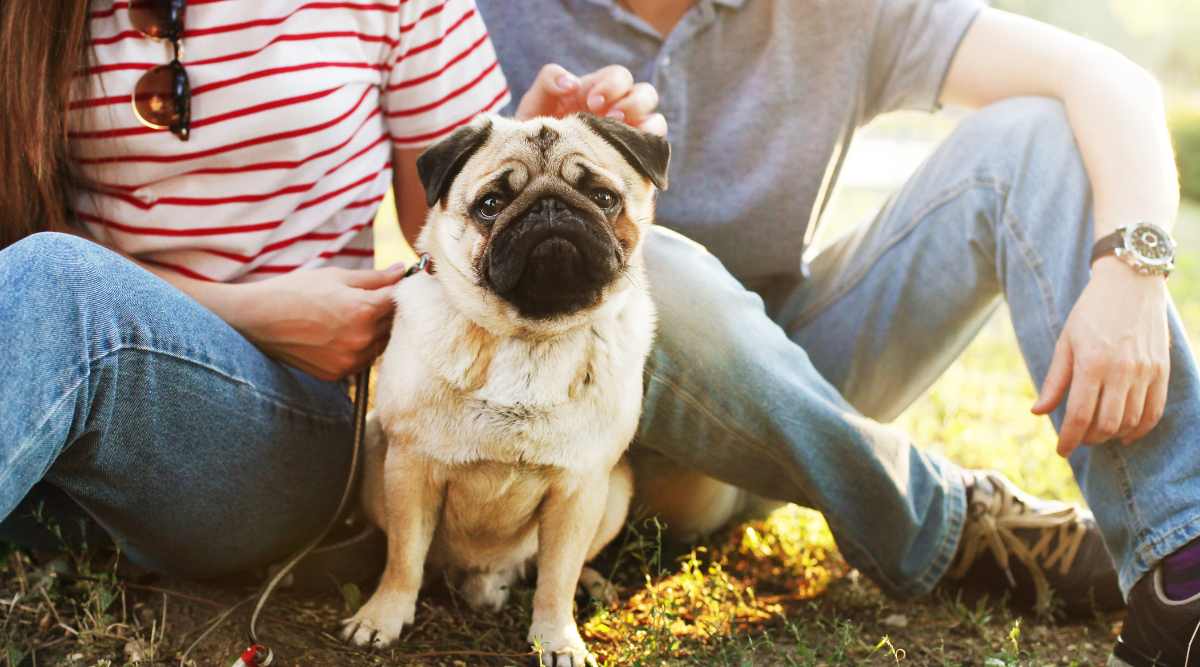
Travel and Lifestyle Habits
Think about your weekly rhythm. Do you travel often for work? Are you out all weekend at sports tournaments? Do both parents work long hours while the kids are at school? Dogs are social creatures who need companionship and routine. Some breeds tolerate alone time well, but others become anxious or destructive if left alone for too long.
If you’re constantly on the go, you’ll need a reliable pet sitter or a breed comfortable with quiet independence. Either way, your lifestyle should support your dog’s needs, not leave them watching the door all day.
Learn more about puppy proofing in our video below:
Top 10 Family Dog Breeds for Every Lifestyle
So, what is the best family dog? Our experts review the top family dogs to help you decide what might work for you (in alphabetical order).
1. Beagles: The Sniffer with a Heart of Gold
If you need an intelligent dog that’s affectionate and excellent with kids, the Beagle may be the right choice for your family. This breed has enough energy to outlast playful children and will take a stand to protect your family as a loyal guard dog.
Beagles are sweet, social, and always ready for an adventure. Known for their gentle temperament and goofy charm, these dogs are great with kids and can handle a bit of rough-and-tumble play. They have just the right amount of energy to keep up with young ones and enough loyalty to make them great little protectors. Just keep snacks out of reach; these nose-powered superheroes will sniff out a cracker from three rooms away.
- Best For: Families with kids who want a small, social, playful dog with a big personality.
2. Border Collie: The Brainiac That Never Gets Bored
This intelligent breed can be the perfect addition to an active family. They love to spend time outside and enjoy games that exercise their mind and body. Border Collies work well in families with more than one pet.
If your family is always on the go, the Border Collie might be your dream dog. These brilliant pups thrive on action, whether it’s chasing a ball, solving puzzle toys, or joining you for a hike. They’re incredibly affectionate with their humans and get along well with other pets. Just be ready to keep their minds busy. This is not a couch potato breed.
- Best For: Active families with time to train and keep a smart pup mentally engaged.
3. Bulldogs: The Laid-Back Legend
Bulldogs are the mellow kings of the dog world. They’re built like tanks but act like lapdogs. Perfect for families who want a sturdy, low-maintenance buddy, Bulldogs are sweet, tolerant, and totally cool with kids climbing all over them. They don’t need much exercise and are perfectly content living in apartments or homes of any size as long as there are treats and belly rubs.
A Bulldog is sturdy enough to handle whatever your kids may throw their way, but they’re also low on the energy scale and perfect for lightly active households. They’re built tough enough to handle rambunctious play but gentle and low-energy enough for indoor living. Bulldogs are affectionate, calm, and completely content with lazy afternoons and cuddles on the couch, as long as you don’t mind a few snores.
- Best For: Families who want a sturdy, low-maintenance dog with a sweet, relaxed personality.
4. Golden Retriever: The Gold Standard of Family Dogs
Golden Retrievers are the epitome of gentle and devoted. Known for their patience, emotional intelligence, and sunny disposition, Goldens are a dream come true for families with kids. They’re naturally affectionate and thrive on being part of every family moment, whether that’s running around the yard, joining a camping trip, or quietly lying their head in your lap during story time.
What makes Goldens especially wonderful is their deep love of people. They’re tolerant of grabby toddler hands, kind to strangers, and loyal to the core. They’re also incredibly trainable and eager to please, making them a great choice for first-time dog owners. Just be prepared for a little shedding—and a whole lot of heart. Whether they’re playing fetch, offering emotional support, or quietly joining family movie night, Goldens fit into almost any household with grace and heart.
- Best For: Families with kids of all ages looking for a gentle, reliable, and affectionate companion.
5. Labrador Retriever: The Playful Protector with a Goofy Streak
Labrador Retrievers are like the best friend every kid dreams of: loyal, loving, and always ready for fun. With boundless energy and a strong desire to please, Labs are fantastic for active families who want a dog that can keep up with hiking trips, backyard games, and daily adventures. They’re known for their big, goofy personalities and their love for absolutely everyone they meet.
Labs are also deeply protective and incredibly reliable, making them trustworthy around children of all ages. They bond quickly with the whole household and do best when included in daily life, not left out of it. While they need plenty of exercise and mental stimulation, their warmth and devotion more than make up for their energetic ways.
- Best For: Active families who want a loyal, enthusiastic companion that loves the outdoors.6.
6. Irish Setters: The Life of the Backyard Party
With their gorgeous red coats and lively personalities, Irish Setters are like the extroverts of the dog world. They’re enthusiastic, outdoorsy, and always down to play. These dogs are fantastic for active families who love hiking, running, or just tossing a ball around the yard. Their fun-loving nature makes them a hit with kids, and their nonstop tail-wagging is downright contagious.
Irish Setters are beautiful, spirited, and full of joy. They thrive in households that love to laugh, run, and explore. Irish Setters are an active breed that loves the outdoors and fits right in as part of a family. With their playful energy and affectionate nature, they’re always eager to be part of the fun. Just give them plenty of exercise, and be ready for a bit of mischief when they get bored.
- Best For: Energetic families who enjoy being outside and want a lively, loving dog with flair.
7. Newfoundlands: The Gentle Giant with a Babysitter’s Heart
Newfoundlands have been called “Nature’s nannies” for their innate love of children. The sweet, gentle giant Newfoundland, or Newfie as it’s commonly called, is the perfect companion for families with room to romp.
Despite their size, Newfies aren’t rowdy or rough. They move slowly, think carefully, and seem to have a natural instinct for caring. They’ll quietly shadow your kids, keep watch over playtime, and are quick to intervene if they sense trouble (usually by stepping in and sitting down like a fluffy wall). They’re incredibly loyal, love being part of the pack, and often try to sit in your lap, whether or not they actually fit.
These fluffy giants are calm, protective, and famously tolerant. They’re happiest when they’re part of the family action, whether standing guard during playtime or curling up near the crib. Just know that with all that love comes a bit of drool and a lot of shedding. Totally worth it.
- Best For: Families with plenty of space, young children, and a soft spot for giant, loving dogs who think they’re lapdogs.
8. Standard Poodles: The Elegant Einstein
Standard Poodles have brains, beauty, and a playful heart. Often underestimated because of their posh appearance, these dogs are actually some of the smartest and most adaptable companions you can find. They pick up commands in record time, thrive on learning new tricks, and love being part of the family action.
Its calm, even-tempered personality sets the Standard Poodle apart from its toy and miniature cousins. They’re generally more relaxed and sturdy, which makes them a better fit for homes with children. These dogs are also hypoallergenic, thanks to their curly, non-shedding coat, making them a solid option for families with allergies. Just be ready for regular grooming, their gorgeous curls don’t maintain themselves.
Whether joining a game of tag in the backyard or gently keeping a toddler company on the rug, Standard Poodles are loving, loyal, and full of quiet charm.
- Best For: Families who want a smart, allergy-friendly, graceful dog that’s just as happy playing as they are cuddling
9. Pugs: The Pint-Sized Comedian with a Whole Lot of Love
Pugs are the class clowns of the dog world, and they own it. With their wrinkly little faces, snorting giggles, and expressive eyes, Pugs seem built to make you laugh. But underneath that silly exterior is a deeply affectionate, people-loving pup who thrives on companionship and belly rubs.
They’re fantastic with kids because they love attention and don’t mind being the star of the show. Pugs are gentle, friendly, and wonderfully tolerant, making them ideal for households with younger children. They don’t need a lot of exercise, but they do need to be included in the fun. Pugs are happiest when they’re right in the middle of the family, whether that means playing a quick game of fetch or supervising dinner prep from the kitchen floor.
Pugs can overheat easily because of their short noses and aren’t the best match for super-hot climates or super-active lifestyles. But for families who want a loving, snuggly, low-key dog with a giant personality, the Pug is a total win.
- Best For: Families looking for a sweet, small companion who brings humor, warmth, and endless cuddle potential
10. Cavalier King Charles Spaniel: The Royal Cuddle Buddy
If you’re looking for a dog that’s as charming as it is affectionate, the Cavalier King Charles Spaniel is a perfect choice. These little furballs are known for their sweet, loving nature and their deep desire to be part of every family moment. They’re friendly with everyone, including strangers, other pets, and especially kids, making them excellent companions for all types of families.
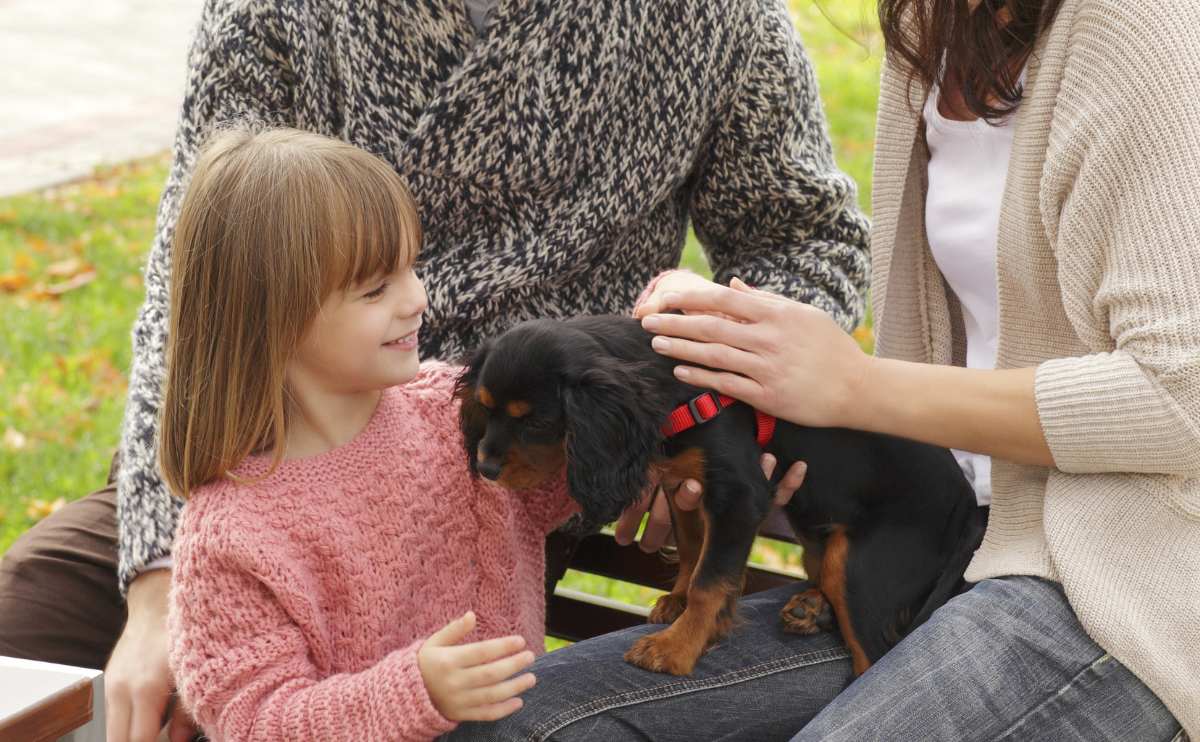
Cavalier King Charles Spaniels are adaptable and happy to lounge on the couch during movie night or join in on a backyard game. Despite their royal name, they’re down-to-earth and easygoing, with a soft coat that loves to be brushed. Just be prepared for lots of cuddles, these dogs are known for being velcro pups who’ll follow you from room to room, always ready to snuggle up.
- Best For: Families who want a small, affectionate dog that’s great with kids and loves to be involved in every activity, from playtime to quiet evenings on the couch.
Know Before You Adopt: Breed-Specific Health Considerations
While all dogs deserve love and care, certain breeds come with unique health predispositions that prospective owners should know. For instance, Labrador Retrievers have a genetic tendency toward obesity, necessitating careful diet and exercise management. Golden Retrievers are prone to hip dysplasia and certain cancers, requiring regular veterinary check-ups.
Beagles, known for their hearty appetites, can easily become overweight if not monitored. Bulldogs and Pugs, with their distinctive flat faces, often face respiratory challenges and are susceptible to heatstroke. Cavalier King Charles Spaniels are at risk for mitral valve disease, a serious heart condition.
Due to their large size, Newfoundlands can experience joint issues like hip and elbow dysplasia. Standard Poodles may be predisposed to conditions such as Addison’s disease and hip dysplasia. Border Collies can be affected by genetic disorders like Collie Eye Anomaly. Irish Setters may face health issues, including bloat and hypothyroidism.
Understanding these potential health concerns can help you make smarter, more compassionate choices when selecting a dog. Knowing what a breed may be prone to allow you to prepare for possible expenses, plan for preventative care, and avoid surprises down the line.
Top 5 Mistakes to Avoid When Choosing a Family Dog
Picking a dog is exciting, but it’s easy to fall in love with a breed based on looks or reputation without thinking through the long-term fit. Here are five common mistakes families make (and how to avoid them):
- Choosing Based on Looks Alone: That adorable fluffball might shed like crazy or need hours of grooming each week. Research first, swoon second.
- Ignoring Energy Levels: A calm household doesn’t need a hyperactive herding breed. Match a dog’s activity needs with your daily routine.
- Overestimating Your Free Time: Puppies are a joy, but they’re also a lot of work. If you’re already juggling school runs and work meetings, a lower-maintenance adult dog might be the smarter move.
- Skipping the Research: Not all breeds fit well with kids or apartment life. Take the time to understand what different breeds need.
- Choosing a Dog “for the Kids”: The whole family needs to be on board. Even if the kids promise to feed and walk the dog (and we know how that usually goes), make sure adults are prepared for the responsibility too.
Frequently Asked Questions
Choosing the right dog for your family isn’t just about breed popularity. It’s about finding the pup who fits your lifestyle, home, and energy level. Below are answers to the most common questions families ask when they’re looking for the perfect four-legged match. If you don’t see yours, let us know in the comments or head over to our forums to connect with other dog owners and experts.
What Are the Best Dogs for Kids?
The best dogs for kids are patient, gentle, and sturdy enough to handle all the hugs, tugs, and occasional chaos children bring. Breeds like Golden Retrievers, Labradors, Beagles, and Pugs are top choices because they’re known for their kid-friendly temperaments. If you have toddlers or babies, always supervise early interactions and teach children to treat dogs respectfully. Even the sweetest pup needs space sometimes, and so do overstimulated toddlers.
Be thoughtful about introducing your dog to your newborn, and talk to your kids about being gentle with a new dog. You’ll always need to keep an eye out for aggressive behavior from the dog or the child.
What Are the Best Guard Dogs for Families?
If you want a dog that’s both protective and great with kids, German Shepherds are a classic pick. They’re loyal, smart, and naturally watchful without being overly aggressive when properly trained. Other breeds, like Boxers or Rottweilers, can also be fantastic family protectors with the right upbringing. Just remember, a good guard dog still needs socialization, training, and lots of love to stay balanced and trustworthy.
What Are the Best Small Family Dogs?
Small dogs can be big on personality and love. Breeds like Pugs, Chihuahuas, and Cavalier King Charles Spaniels are affectionate, playful, and happiest when they’re close to their humans. They’re an excellent fit for families living in apartments or homes with limited space. Just remember that smaller dogs can be more delicate, so it’s important to teach kids how to play gently and respect their boundaries. With the right match and a little supervision, small breeds can be just as sturdy in spirit as their larger cousins.
What Are The Best Hypoallergenic Family Dogs?
The Bichon Frise is an excellent hypoallergenic choice for families, while the best family dogs that don’t shed tend to be Poodles. You can learn more about hypoallergenic dogs and non-shedding breeds from our experts. Just keep in mind that “hypoallergenic” doesn’t mean allergen-free. It simply means the breed is less likely to trigger allergic reactions. Regular grooming can help, too, no matter the breed.
What Are the Best Inside Family Dogs?
Most dogs can do well indoors as long as their physical and mental needs are met. Pugs, Bulldogs, and Cavalier King Charles Spaniels thrive as house dogs, but even larger breeds like Standard Poodles or Newfoundlands can be great inside dogs if they get daily exercise. The key is matching their energy level with your home setup and routine.
Where to Find Your Future Family Dog
When it’s time to welcome a dog into your family, you’ve got a few great paths to choose from. Local animal shelters and rescue organizations are excellent places to start. They’re often filled with loving dogs of all ages just waiting for a second chance, and many are already house-trained and socialized.
If you’re looking for a specific breed, consider working with a reputable breeder who prioritizes health, temperament, and ethical practices. Be sure to ask questions, meet the puppy’s parents, and avoid breeders who won’t let you visit in person.
You can also check with breed-specific rescues, foster networks, and adoption events in your area. Whether you adopt from a shelter or go through a responsible breeder, the most important thing is finding a dog that fits your family’s lifestyle and needs.
How to Spot a Responsible Breeder or Shelter
When choosing a shelter or rescue, look for:
- Clean, safe facilities and friendly staff
- Willingness to share health and behavior histories
- A thorough adoption process with reference checks
- Post-adoption support and return policies
- Dogs that appear healthy, socialized, and well-cared for
- When working with a breeder, make sure they:
- Let you meet the puppies and the parents.
- Prioritize temperament, health, and early socialization.
- Provide vaccination records and health screenings.
- Limit the number of litters and avoid overbreeding.
- Ask questions to ensure a good match, not just make a sale.
Choosing the right source is just as important as choosing the right dog. A little homework up front leads to a happier life for everyone—pup included.
Dogs Bring Joy To Families
Dogs don’t just bring joy; they support the health and happiness of the whole family. For kids, growing up with a dog can boost self-esteem, empathy, and social skills, while seniors often enjoy increased mobility, reduced loneliness, and even longer lifespans. These aren’t just feel-good perks, either. A 2017 systematic review by Purewal et al. found that companion animals can positively impact child and adolescent development, making dogs a powerful presence in multigenerational homes.
In this one-minute video from The Ellen Show, you can see how much joy a pup can bring to a family with lots of love and affection to share.
Top 6 Training Tips for New Dog Owners
Training your new dog doesn’t have to feel like a full-time job. With consistency, patience, and a few tasty treats, you’ll be well on your way to raising a well-mannered pup. Whether you’re starting with a puppy or adopting an older dog, here are some foundational tips every new dog owner should keep in mind:
- Start on Day One: Dogs learn patterns fast, so begin training the moment they arrive. Establish routines for meals, potty breaks, and bedtime.
- Use Positive Reinforcement: Reward good behavior with treats, praise, or play. Dogs respond best when they know what they’re doing right.
- Keep Sessions Short and Fun: Five to ten minutes is all you need. Training should feel like a game, not a lecture.
- Be Consistent: Use the same words and rules every time. If jumping on the couch is off-limits today, it should be off-limits tomorrow, too.
- Socialize Early: Expose your dog to different people, pets, and environments to build confidence and prevent fear-based behavior later on.
- Don’t Expect Perfection Overnight: Progress takes time. Celebrate small wins and remember that patience is your best training tool.
A Lifetime of Love: Keeping Your Family Dog Happy and Healthy
Welcoming a dog into your family is the beginning of a beautiful bond and a lifelong commitment. Help them settle in by creating a calm, consistent routine and offering plenty of patience during the early days. Whether you’re bringing home a playful puppy or a wise senior, stability, affection, and time are the keys to building trust and helping them feel at home.
To keep your dog healthy for years to come, focus on the essentials: age-appropriate food, regular exercise, mental enrichment, and routine vet care. Don’t overlook the power of play, daily affection, and just being present. These small moments create a sense of security and joy that lasts a lifetime. If you’re ready to take the next step, explore local shelters, talk to trusted breeders, or check out adoption events near you, your perfect family dog might be waiting just around the corner.


